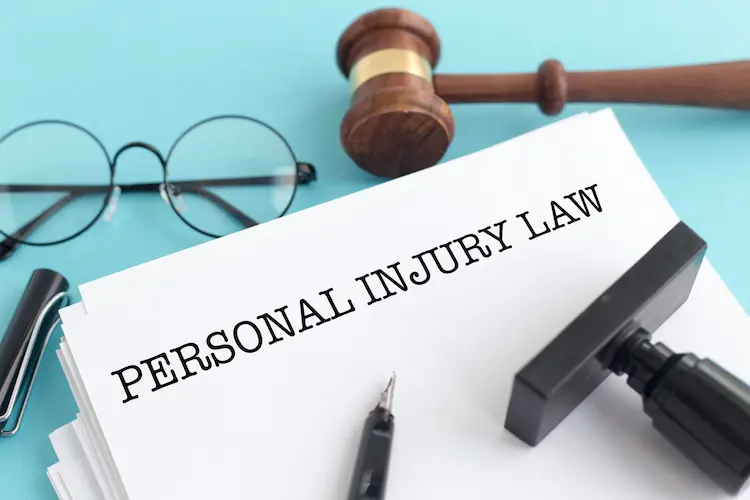Hundreds of Houston residents are subject to personal injury yearly. Sadly, personal injury can be such a life-altering event, affecting not only physical and emotional well-being but also the financial stability of individuals and their families. Depending on the nature and severity of the incident, some people lose a limb, suffer brain damage, or incur some other lifelong disability that renders them unable to return to their previous jobs.
Hence, personal injuries can lead to long-term financial burdens beyond the immediate medical expenses that extend beyond the incident. Understanding the comprehensive economic impact of personal injury is crucial for victims, policymakers, and society. This discourse examines how personal injury affects victims’ financial lives.

Direct Financial Costs
The direct financial costs of personal injury are often substantial and can vary widely depending on the severity of the injury and the healthcare system in place. Medical bills, including hospitalization, surgeries, medication, rehabilitation, and ongoing therapy, can quickly accumulate into significant debts. Even with insurance coverage, copayments, deductibles, and uncovered expenses can strain victims’ finances.
Moreover, some injuries require long-term care or assistive devices, further adding to the financial burden. Notwithstanding, a sizable part of these costs is usually covered by insurance. It is one reason you need to be insured as a Houston resident, whether for general liability, auto insurance, or otherwise.
Legal Expenses
Dealing with legal matters after a personal injury in Houston can be daunting and costly. From hiring lawyers to paying court fees, the expenses add up. However, working with reputable Houston personal injury lawyers can be one of the best steps you can take now. In Houston, personal injury attorneys usually work on your case without upfront payment. They’ll fight tirelessly for your rights, only taking their fee when they secure compensation.
This compassionate approach eases financial strain and provides much-needed support and guidance during a challenging time. With their expertise and dedication, these lawyers help navigate the complexities of the legal system, ensuring you receive the justice and compensation you deserve.

Loss of Income and Earning Capacity
Personal injuries frequently result in loss of income or earning capacity, mainly if the victim is unable to work temporarily or permanently. Lost wages can significantly impact an individual’s ability to meet financial obligations, such as mortgage or rent payments, utility bills, and other daily expenses.
The loss of income can be even more devastating for self-employed individuals or those without adequate sick leave or disability benefits. Additionally, future earning potential may be diminished if the injury impairs the victim’s ability to perform their job or pursue career advancement opportunities.
Indirect Financial Consequences
Personal injuries can have indirect financial consequences that are less immediately apparent but equally impactful. For instance, ongoing medical care or rehabilitation may require modifications to the victim’s living environment, such as installing ramps or adaptive equipment, which can incur substantial expenses.
Furthermore, psychological trauma resulting from the injury may necessitate counseling or therapy, adding to the overall financial burden.
Beyond individual financial repercussions, personal injuries impose broader economic costs on society. Productivity losses from absenteeism, disability, or premature death diminish economic output and tax revenues.
Addressing the Financial Impact
- Preventive measures: Workplace safety regulations, traffic laws, and public health initiatives can mitigate the occurrence of personal injuries and reduce associated costs. Early intervention may also be through prompt medical treatment and rehabilitation services to improve outcomes and minimize long-term disability. This can help reduce the financial burden on individuals and society.
- Financial assistance: Society can help by providing access to affordable healthcare, including rehabilitation services and mental health care. This is critical for ensuring optimal recovery and minimizing financial hardship. Other ways the economic impact of personal injury is addressed are by providing disability benefits, unemployment insurance, and vocational rehabilitation programs. This means injured victims who can no longer work will have financial assistance.
- Legal reforms: Alternative dispute resolution mechanisms like mediation or arbitration may offer quicker and less costly resolutions than traditional litigation. Moreover, implementing measures to hold negligent parties accountable, such as punitive damages or mandatory insurance coverage, can deter unsafe behaviors and provide additional financial resources for injured individuals.
Final Words
As you can see, the financial impact of personal injury on victims is profound and multifaceted. Addressing these challenges requires that individuals and professionals be more careful to prevent personal injury. Early intervention and robust support systems must also be available to reduce the damage and long-term impact.
When the full scope of the financial implications of personal injury is understood, policymakers, healthcare providers, and communities can work together to mitigate the burdens victims face and promote greater resilience and well-being for all.